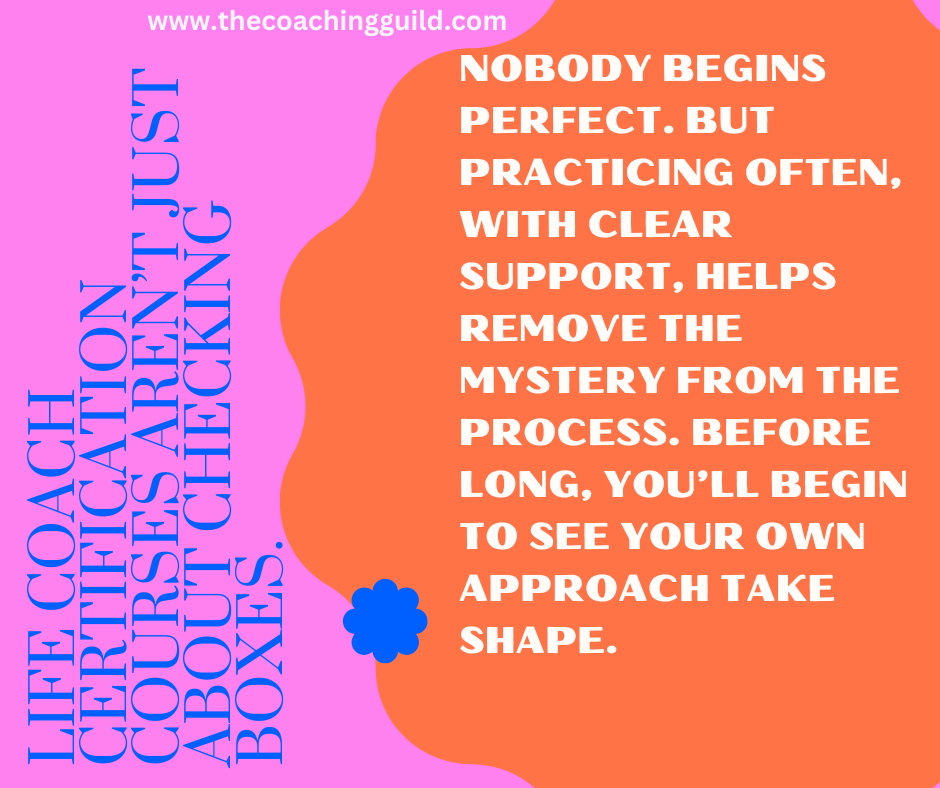Proven Strategies to Attract Your First Life Coaching Clients

Starting a career as a life coach is like setting out on a journey filled with excitement and a hint of uncertainty. You're stepping into a world where your passion for helping others can truly shine, making a lasting impact on your clients' lives. Many aspiring life coaches find the thrill of watching clients reach their goals to be one of the most rewarding parts of the job. As you help them navigate their paths, you're not just witnessing their growth—you're also experiencing your own.
Yet, the adventure of becoming a life coach isn't without its challenges. Attracting your initial clients might feel a bit daunting, especially when you're just getting started. The good news is there are proven strategies that can ease the process and pave the way for a thriving practice. By focusing on building connections and understanding your audience, you can create a strong foundation for your business. Let's explore some key approaches that can help you bring your first clients on board.
Identify Your Target Audience
Understanding who your ideal clients are is key to building a successful life coaching practice. Imagine you're hosting a party—knowing who to invite ensures the vibe aligns with your goals. The same idea applies to coaching. Knowing your target audience helps tailor your services to their unique needs and desires, ensuring a perfect fit.
Here's how you can pinpoint your ideal client:
- Identify Common Traits: Think about the types of people who would benefit most from your expertise. Are they professionals looking to enhance their careers, or individuals wanting to improve personal relationships?
- Consider Your Interests: Align your personal interests and passions with the needs of your potential clients. If you're passionate about wellness, focusing on clients seeking lifestyle improvements can be a good match.
- Gather Feedback: Reach out to friends or colleagues and discuss your coaching plans. Their insights can provide valuable perspectives and help you refine your target audience.
- Use Online Resources: Online communities and social media groups can offer a glimpse into what your potential clients are talking about and the challenges they're facing.
By taking these steps, you'll gain a clearer understanding of whom you're best equipped to help. With this knowledge, you can tailor your marketing efforts and build a coaching practice that resonates with those who need your guidance the most.
Utilize Your Network Effectively
Starting with those you already know can be a powerful way to connect with potential clients. Friends, family, and former colleagues might not need a life coach themselves, but they could know someone who does. A simple conversation about your new venture might lead to surprising connections.
Creating a strong network involves some thoughtful steps:
- Reach Out Personally: Begin by reaching out to people who are already in your network. Send them a personalized message or make a call to discuss your new coaching business.
- Leverage Social Media: Platforms like LinkedIn are great for connecting with people who might be interested in or know others interested in life coaching. Share regular updates and insights about your work to keep your network engaged.
- Attend Networking Events: Participating in local or virtual networking events can broaden your circle. It's an excellent opportunity to meet people who share similar interests or who could benefit from your services.
Word-of-mouth remains one of the most effective tools for finding new clients. When those in your network understand what you do and see your passion, they become informal ambassadors for your practice.
Create an Online Presence
Having a strong online presence allows you to reach wider audiences and establish credibility. Building and maintaining a professional website is your first step in showing potential clients who you are and what you offer. The website should clearly present your services and be easy to navigate. It serves as both an information hub and a way to connect with you.
Social media platforms play a vital role in getting the word out. Regularly post content that reflects your expertise and passion for coaching. Engage with comments and be responsive to messages.
Key elements of a solid online presence include:
- Professional Website: Your site should reflect your brand and clearly outline your services and qualifications. Adding a blog section can showcase your knowledge and provide valuable insights to visitors.
- Social Media Profiles: Use platforms relevant to your audience, like Instagram or Facebook. Share success stories, valuable advice, and updates about your practice.
- Consistent Content: Regular content keeps you in front of potential clients and establishes your credibility. Try a mix of tips, personal anecdotes, and motivational posts that relate to your coaching themes.
A compelling online presence allows potential clients to get a sense of who you are before they ever meet you, providing them with confidence in your abilities.
Offer Free Workshops or Seminars
One great way to showcase your expertise and attract new clients is by offering free workshops or seminars. These events can provide valuable insights to participants while positioning you as a knowledgeable and approachable expert.
Consider these aspects when planning:
- Choose Relevant Topics: Select subjects that resonate with your target audience. This could be anything from stress management to finding balance in life.
- Interactive Sessions: Encourage participation. Interactive elements like Q&A periods or short exercises can make the session engaging and memorable.
- Follow-Up Opportunities: After the event, provide ways for participants to stay connected with you. Whether through a newsletter sign-up or a free initial coaching session, these opportunities can turn interested attendees into clients.
By organizing and hosting workshops, you open the door for future clients to experience your coaching style firsthand. It’s a great method for building trust and establishing a solid client base.
Summarize and Inspire
As you begin your path as a life coach, remember that attracting your first clients is about building connections and demonstrating genuine value. From tapping into your personal network to crafting an enticing online presence, each step you take leads closer to establishing a successful practice.
Take these insights into action and explore how they can work for you. You have the tools and passion; now it's about reaching those who can benefit from your unique skills. Starting out can be intimidating, but with persistence and dedication, the fulfillment of helping others through your coaching service will make it all worthwhile.
Starting a life coaching practice is an exciting venture filled with opportunities to make meaningful connections. If you're ready to take the next step in helping individuals reach their personal goals, consider how you might find a life coach who aligns with your specialties. At The Coaching Guild, we guide coaches like you to excel in your passion, making a positive impact on the lives of those you coach. Let's work together to build your coaching career into a rewarding journey.


